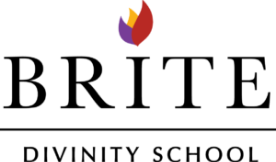November 1, 2023
On the eve of All Saints’ Day, October 31, Brite Divinity’s emerging Center for Theology and Justice held a first event for the school’s resident community. A more formal public “launch event” will be held in the near future.
A key component of a new long-range plan adopted by the school’s board the previous week, the Center will bring to bear the expertise of Brite’s faculty and others on pressing matters of justice. The new center will be led by the Rev. Dr. Jeremy Williams, Assistant Professor of New Testament. Williams preached a rousing sermon in the weekly chapel service preceding the initial event, held during Brite’s regular weekly Community Conversation.
Four of Brite’s other professors joined Williams in reflecting on the impact of recent U.S. Supreme Court decisions. Each faculty member who spoke directs another one of Brite’s centers, which focus on Black, Asian, and Jewish community issues and theological currents, as well as those confronting members of LGBTQIA+ communities.
Drs. Timothy Lee and Ariel Feldman spoke in turn of how Asian and Jewish communities are not monolithic but nevertheless come to consensus on the adverse impact of SCOTUS’s decisions on affirmative action and opening more legal lanes to allow discrimination against minoritized individuals and communities. Dr. Oluwatomisin Oredein also addressed dismantling affirmative action as a way of further reinforcing efforts to “trick non-whites” and falsely portray “Blacks’ intelligence as inferior to white intelligence.”
Along with her colleagues, Professor Shelly Matthews drew a link between the Dobbs decision’s weakening of women’s rights and resurgent discrimination against LGBTQIA+ and other groups. This “looms large especially in Texas,” she commented, noting efforts to police interstate highways and restrain out-of-state travel for abortions. Matthews also said the new Center can help clarify responsible approaches to biblical interpretation, on which hinge many people’s personal views and political stances.
Concluding with his excitement about the potential offered by the new Center, Williams applauded its ability to “bring together brilliant scholars” to address critical issues before us as individuals, faith communities, and a society.

